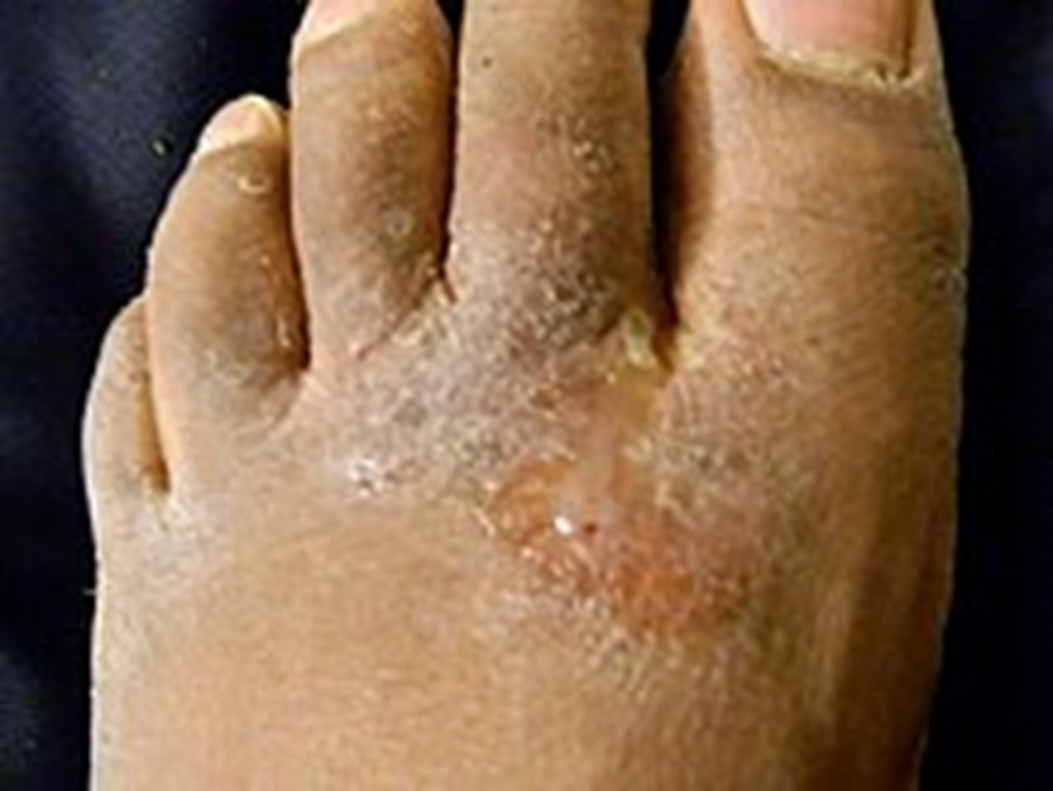A nurse is caring for a school-age child who has juvenile idiopathic arthritis.
Which of the following home care actions should the nurse recommend? (Select all that apply)
Use cold compresses for joint pain.
Take ibuprofen on an empty stomach.
Perform range of motion exercises.
Consider homeschooling.
Provide extra time for completion of ADLs.
Correct Answer : A,C,E
Choice A rationale
Cold compresses can help relieve joint pain associated with juvenile idiopathic arthritis. Cold therapy can reduce inflammation and numb the affected area, providing temporary relief.
Choice B rationale
This is incorrect. Ibuprofen should not be taken on an empty stomach because it can cause stomach upset or even lead to ulcers or bleeding. It is generally recommended to take ibuprofen with food or milk.
Choice C rationale
Performing range of motion exercises can help maintain joint flexibility and muscle strength in children with juvenile idiopathic arthritis. Regular exercise can also improve overall physical function and well-being.
Choice D rationale
While homeschooling may be a consideration for some families, it is not a general recommendation for all children with juvenile idiopathic arthritis. Many children with this condition can attend regular school with some accommodations as needed.
Choice E rationale
This is correct. Providing extra time for completion of activities of daily living (ADLs) can help children with juvenile idiopathic arthritis manage their symptoms and maintain their independence. It is important to allow children to perform tasks at their own pace to avoid causing unnecessary pain or fatigue.
Nursing Test Bank
Naxlex Comprehensive Predictor Exams
Related Questions
Correct Answer is D
Explanation
Choice A rationale
Discouraging the client from ambulating is not the best action. While it’s important to limit weight-bearing activities initially, movement is encouraged to promote circulation and prevent complications such as deep vein thrombosis.
Choice B rationale
Using a hair dryer on a hot setting to dry the cast is not recommended. Heat can cause the cast to dry out and crack, and it can also burn the skin.
Choice C rationale
Keeping the client’s leg in a dependent position is not advisable. This can lead to increased swelling and pain, and potentially delay healing.
Choice D rationale
Performing a neurovascular check of the lower extremities is the correct action. This involves assessing for pain, pallor, pulselessness, paresthesia, and paralysis. These checks are crucial for monitoring for complications such as compartment syndrome and ensuring the cast is not too tight.
Correct Answer is B
Explanation
Choice A rationale
Shingles, also known as herpes zoster, is a viral infection that causes a painful rash and is caused by the varicella-zoster virus, the same virus that causes chickenpox.
Choice B rationale
Tinea pedis is a foot infection due to a dermatophyte fungus. It is the most common dermatophyte infection and is particularly prevalent in hot, tropical, urban environments. Interdigital involvement is most commonly seen (this presentation is also known as athlete’s foot, although some people use the term for any kind of tinea pedis).
Choice C rationale
Fever blister, also known as cold sores, are caused by the herpes simplex virus. They are small, fluid-filled blisters that develop on the lips or around the mouth.
Choice D rationale
Pinworms are a type of parasite that lives in the lower intestine of humans. They are tiny, narrow worms. They are white and less than a half-inch long.

Whether you are a student looking to ace your exams or a practicing nurse seeking to enhance your expertise , our nursing education contents will empower you with the confidence and competence to make a difference in the lives of patients and become a respected leader in the healthcare field.
Visit Naxlex, invest in your future and unlock endless possibilities with our unparalleled nursing education contents today
Report Wrong Answer on the Current Question
Do you disagree with the answer? If yes, what is your expected answer? Explain.
Kindly be descriptive with the issue you are facing.
